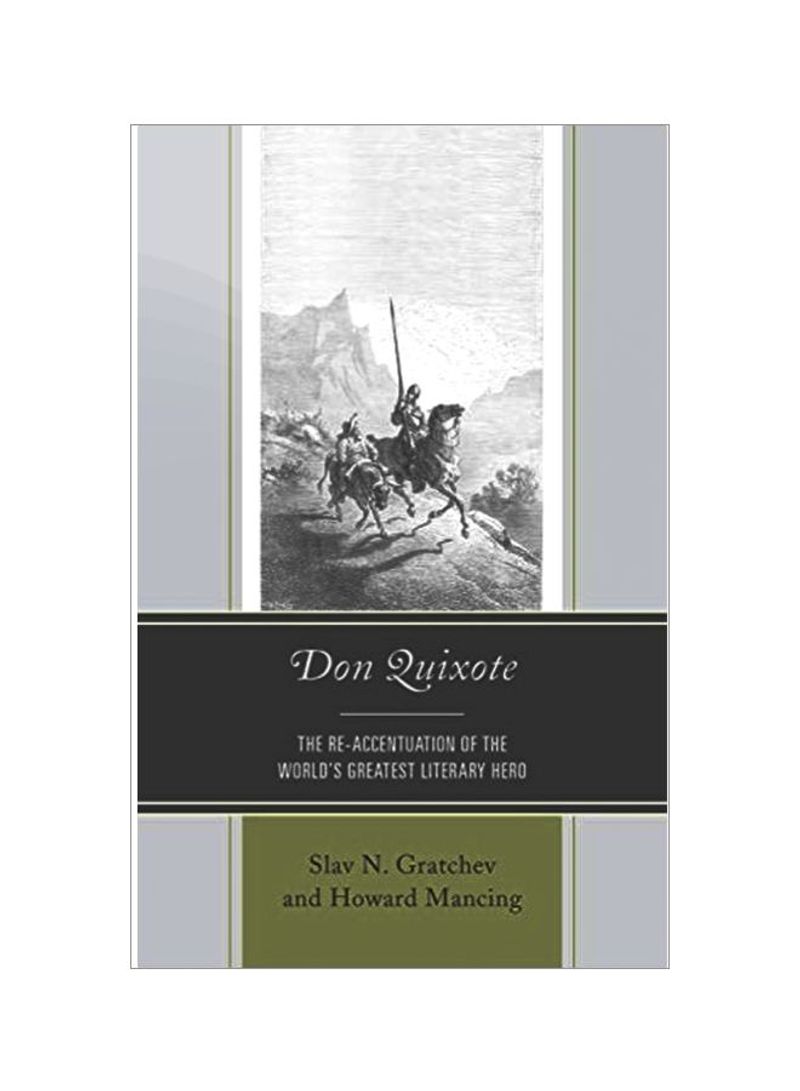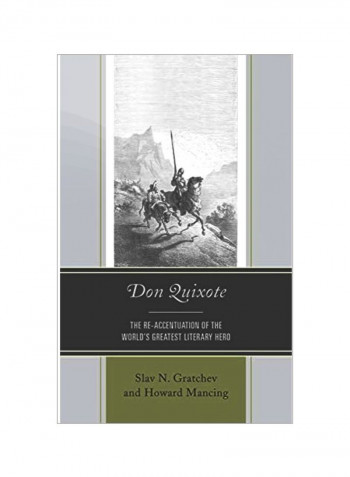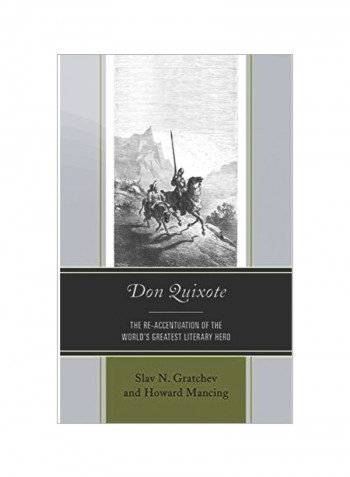Sort by
Rating
Date
Specifications
Author 1
Slav N. Gratchev
Book Description
This book is a unique scholarly attempt to examine Don Quixote from multiple angles to see how the re-accentuation of the world's greatest literary hero takes place in film, theatre, and literature. To accomplish this task, eighteen scholars from the USA, Canada, Spain, and Great Britain have come together, and each of them has brought his/her unique perspective to the subject. For the first time, Don Quixote is discussed from the point of re-accentuation, i.e. having in mind one of the key Bakhtinian concepts that will serve as a theoretical framework. A primary objective was therefore to articulate, relying on the concept of re-accentuation, that the history of the novel has benefited enormously from the re-accentuation of Don Quixote helping us to shape countless iconic novels from the eighteenth century, and to see how Cervantes's title character has been reinterpreted to suit the needs of a variety of cultures across time and space.
ISBN-13
9781611488579
Language
English
Publisher
Bucknell University Press
Publication Date
29 November 2017
Number of Pages
308
About the Author
Slav N. Gratchev is associate professor of Spanish at Marshall University. Howard Mancing is professor of Spanish at Purdue University.
Editor 1
Howard Mancing
Editorial Review
The 17 essays in this volume, which also includes an introduction by Gratchev (Marshall Univ.) and Mancing (Purdue Univ.), take as their point of departure the concept of re-accentuation, initially proposed by Mikhail Bakhtin in The Dialogic Imagination (1975; Eng. tr., 1981). The interpretive and analytical openness of key works of prose fiction allow for re-reading and re-imagination in subsequent ages and through different media and approaches. In particular cases, the possibilities seem infinite. A primary example for Bakhtin was Cervantes's Don Quixote and its eponymous protagonist. The present collection is divided into sections on imagery and ideology, literature, film, and theater and television. The great majority of the contributors are academics (in various fields), but one is a professional puppeteer and another a marketing consultant. A special pleasure of this text lies in the diversity of references and juxtapositions: Dore, Dali, Fielding, Unamuno, Borges, Thomas Mann, Waldo Salt, Kathy Acker, Jean-Pierre Jeunet, the Chinese director Ah Gan, Orhan Pamuk, multiple Russian connections, and so on. The essays are intriguing in their range and methodologies, and they become testaments to the afterlife-what Bakhtin termed the "unfinalizability"-of Don Quixote in both public and artistic spheres. Summing Up: Highly recommended. Graduate students, researchers, faculty.



